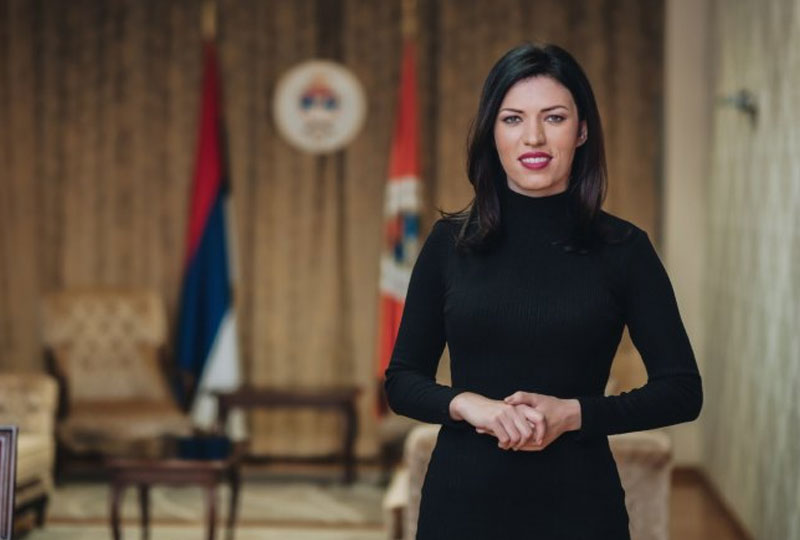The Constitutional Court of BiH, as a Dayton institution, has a composition and jurisdiction determined by the Constitution, which prescribes nine members. When there are not nine constitutional members, it is not a Constitutional Court but rather a group of individuals claiming to represent it, stated Sanja Vulić, head of the SNSD parliamentary caucus in the House of Representatives of the Parliamentary Assembly of BiH.
Commenting on a statement from the Constitutional Court of BiH, in which they claim there are excessive and tendentious attacks against the institution, and that such actions aim to turn citizens, as taxpayers, against them “for the purpose of an election campaign,” Vulić said she carefully read the statement on the official website of the incomplete Constitutional Court to verify its authenticity.
She pointed out that the statement was unsigned, leaving the public without clarity on whether it represents the view of the president or the court members established in a session or if it came from the press office of this incomplete judicial institution that calls itself a Constitutional Court.
“It seems most likely that the authors are the foreign judges,” Vulić emphasized.
In the statement, they address the citizens, as they like to refer to the constituent peoples of BiH, while labeling any criticism of their work as an attack, pressure, or an attempt to turn citizens against them ahead of elections, portraying themselves as engaged in “superhuman efforts and battling windmills.”
“Such constitutional and legal terminology indeed. It almost makes you feel sorry for these constitutional champions. But the fact that they issued a statement means they were affected, as they react like this whenever the topic of salaries and work results is brought up,” Vulić remarked.
She noted that the people of both entities likely know little about this alienated Dayton institution and its work. According to her, the salaries of the Constitutional Court members and the costs of the international judges are, judging by the statement, some kind of “sacred constitutional cow” that cannot be mentioned or discussed.
“They seem to prefer discussions about the salaries of MPs and delegates in the Parliamentary Assembly of BiH and whether or not laws are being passed, as they tried to humorously depict in their statement,” Vulić added.
She also pointed out that the Constitutional Court addresses citizens, yet after reading Article 6 of the BiH Constitution, she did not see anywhere that the court works directly with citizens.
“According to them, it’s as if they are some sort of counter for dealing with citizens,” Vulić remarked.
She emphasized that MPs are elected by citizens and their work is scrutinized in a modern democratic manner, or maybe that’s not the case.
Vulić highlighted that the international judges, whom she described as “lost and wandering in the fog,” are likely frustrated that they often have to come and “work” their overpaid jobs. She noted that after five years of their initial appointment, the condition was met for them to be replaced by domestic judges.
“They don’t protect or uphold the Constitution; instead, they stretch it to a caricature and have become a political factor because they long ago ceased being constitutional law experts. Every discussion should begin and end with the statement: ‘Gentlemen, members of the Constitutional Court, how many of you are there currently? Not nine? Then you are not a constitutional Constitutional Court!’ They spend budget funds, are accountable to no one, create their own budget requests, and still deliver political lessons and messages to the citizens,” Vulić said.
She announced that she will thoroughly review the next budget request of the Constitutional Court within her parliamentary duties and assess its justification, especially in the context of the false representation of the incomplete Constitutional Court.
Vulić concluded by stating that unlike their work, hers is tested every four years, not until the age of 70.
Source: RTRS









